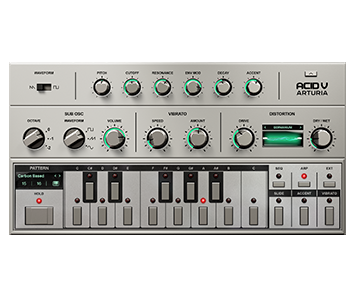Acid V
Corrosive bassline machine

1. Download & install the Arturia Software Center (ASC)
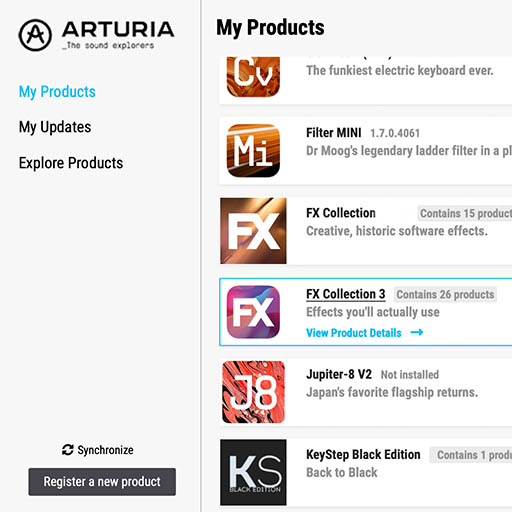
The Arturia Software Center (aka ASC) lets you activate, install and update your Arturia virtual instruments on your computers.
It will let you access the software you own as well as demos of the other titles in the Arturia catalog.
2. Log into the Arturia Software Center

Enter the same email address and password as for your My Arturia account. You will then be able to find your Product License on the main panel.
If you don’t have a My Arturia account, click on create account and follow the process to create one.
If you're using an offline computer, please follow the process described in this this article
If you have purchased your software license on the Arturia website, it has been automatically registered into your account. Otherwise click on the button “Register a new product” on top of the main window.
3. Install and Activate your product through the ASC
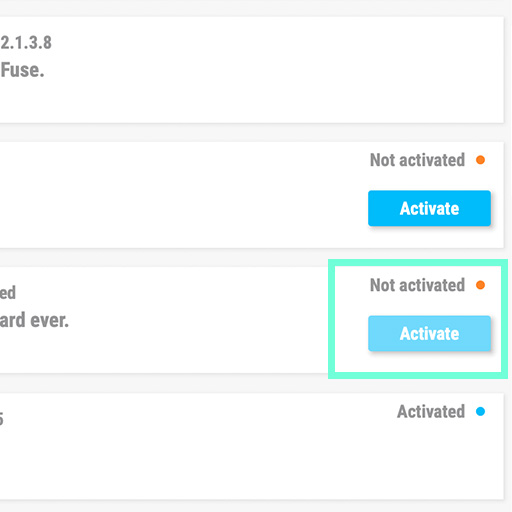
Look for your product in the list and click on the “Install” button to launch the silent installation process.
You will be asked to define the destination folders on the first time.
Your product will remain in demo mode until it is activated. To do so click on the “Activate” button. Your brand new effect will now be activated.
You are now able to use it without restriction on up to 5 different computers simultaneously. To do that, repeat this operation on your other computers.
4. Launch Your Product
Your product is not available as a standalone software.
It must be used in a DAW (Digital Audio Workstation).
Click on the icons to see how to select and use your new effect in the most popular DAWs:
Discover, experiment, enjoy!

Ableton Live

Bitwig

Cubase

FL Studio
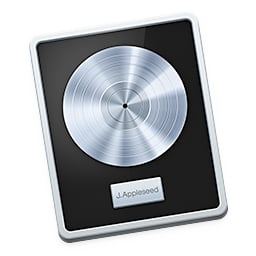
Logic Pro X

Pro Tools

Studio One
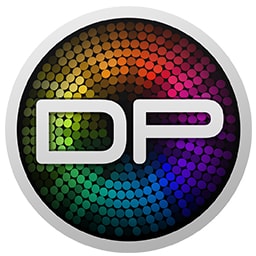
Digital Performer
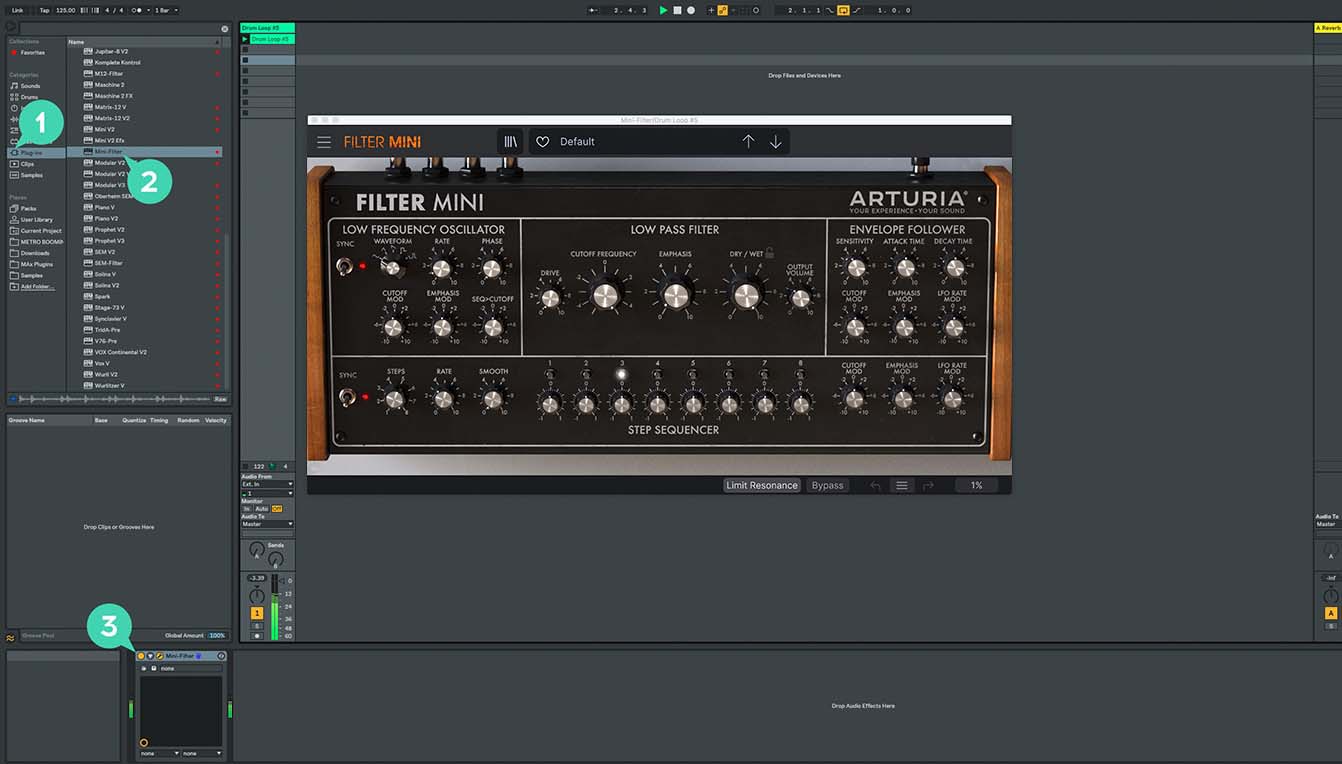
For Ableton Live
1/ Open the Live browser, and click on the 'Plug-ins' section.
2/ In the VST or Audio Unit* folder, browse the virtual effect of your choice.
3/ Drag & drop it in your track or FX return.
Acid V
Tutorials
Learn all of the tips, tricks, and features that make Arturia's debut interface your perfect partner in crime. We take you through everything you need to know about the Acid V in this careful guided tour to make sure you won't miss anything!
Tutorials | Ep. 1: Overview
Acid V’s features & sounds in action
In this tutorial, pianist & composer Matt Paull guides you through every aspect of Acid V, from the colorful history of its hardware predecessor to its upgraded creative features. Next-level 303 tones await.
Tutorials | Ep. 2: How to make Acid Trance
Anthemic melodies from the bassline machine
It might be based on a bassline synth icon, but Acid V has plenty of other sonic tricks up its sleeve. In this video, Matt Paull shows you how to set it up for euphoric trance melodies that are 100% dancefloor-ready.
Tutorials | Ep. 3: How to make Acid Bass
Essential, abrasive, in-your-face bass
Matt Paull gives you a step-by-step guide to setting up Acid V for the ultimate edgy bass sound, from its razorblade filter sweeps to the red-hot saturation of its built-in distortion module.
Tutorials | Ep. 4: How to make Ambient Acid
Spacious patterns & acidic echoes
Give your ambient mixes and evolving soundscapes a chemical touch with the help of Acid V; in this video, Matt Paull takes you step-by-step through the process of creating rich & otherworldly ambient textures with the corrosive bassline machine.
Need more help ?
Our support team is happy to help you with questions on how to use Arturia instruments. You can contact them from this page :
Ask for help
